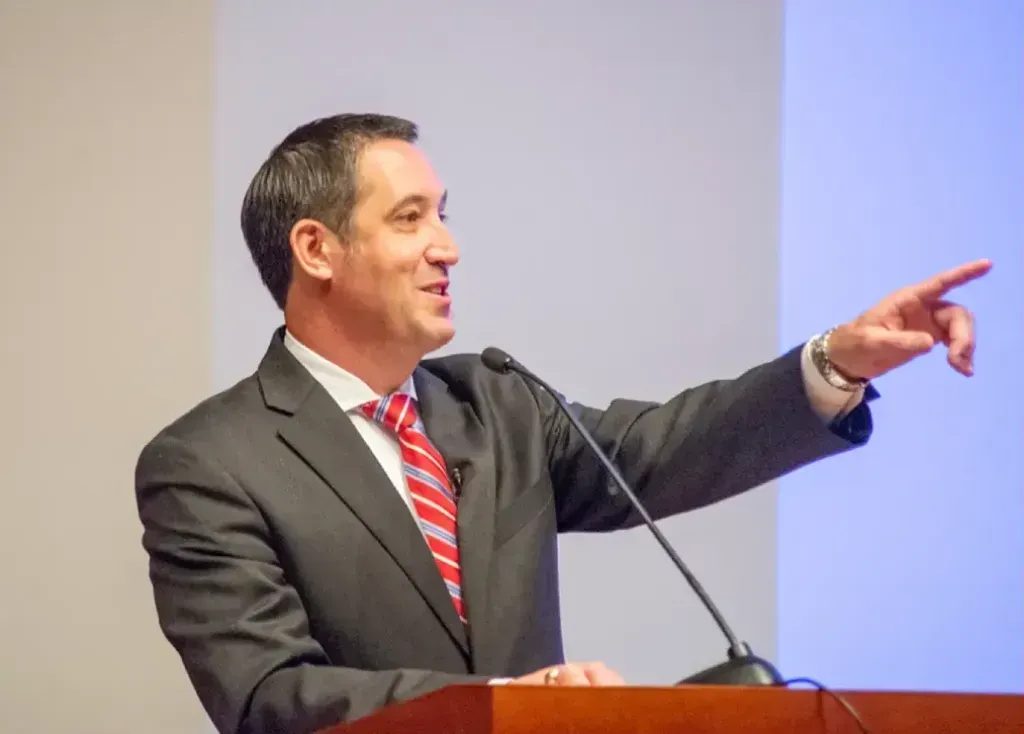Texas Pushes to Eliminate BEAD Low-Cost Broadband Requirement
Texas broadband official urged senators to remove affordability mandates, and labor requirements.
Jericho Casper

Feb. 10, 2025 – Texas Comptroller Glenn Hegar called on federal officials Thursday to strip key requirements within the $42.5 billion Broadband Equity, Access, and Deployment program.
In a letter to Senate Commerce Committee Chairman Ted Cruz, R-Texas, Hegar shot at the BEAD program’s low-cost broadband requirement, calling it an example of impermissible rate regulation.
“This requirement is viewed as running counter to [the] legislative mandate against rate regulation,” Hegar wrote. “Removing this requirement may increase overall provider participation and support efficient deployment of funds.”
The low-cost broadband service option requires providers receiving BEAD funds to offer a discounted internet plan to low-income households for at least 10 years. States had some flexibility in setting the price, with low-cost plans varying widely — from as low as $30 per month to as high as $110, depending on the state and regional cost factors.
Hegar, who oversees the Texas Broadband Development Office, argued that Texas’ $3.3 billion BEAD allocation was delayed by excessive federal review from the agency overseeing BEAD, the National Telecommunications and Information Administration.
“Regrettably, NTIA's approval process was unnecessarily protracted, requiring numerous revisions over an 11-month period,” Hegar said.
Some industry observers had speculated that the low-cost mandate was a sticking point in Texas' prolonged approval process, making it the very last state to receive NTIA’s green light to begin funding BEAD projects.
Beyond BEAD’s affordability mandates, one of the biggest concerns Hegar raised was NTIA’s prioritization of fiber over wireless and satellite broadband technologies that he said would limit provider participation and delay deployment. He urged the agency to relax or eliminate unclear guidelines surrounding alternative broadband technologies in high-cost, hard-to-reach areas.
“Expanding the use of alternative technology for additional high-cost areas may decrease time to deployment, increase locations served, and reduce costs,” he wrote.
Hegar also said he wanted to overhaul federal environmental and historic preservation rules, arguing that permit requirements under the National Environmental Policy Act and the National Historic Preservation Act should be eliminated or significantly loosened.
These requirements, he said, often add a year or more to broadband construction timelines because BEAD recipients must obtain all permits before breaking ground. He said that was a contrast from programs funded under the American Rescue Plan Act and Capital Projects Fund, which did not require NEPA reviews.
“These requirements often are seen as outdated, redundant, and politicized,” Hegar wrote. “Removing them may significantly decrease time to deployment and reduce administrative complexity.”
Hegar also pushed for eliminating financial and labor-related barriers. He cited the letter of credit requirement; reducing or eliminating the 25 percent match requirement; scrapping Davis-Bacon and prevailing wage requirements; relaxing Build America, Buy America Act requirements; and eliminating cybersecurity and workforce development mandates.
“Certain ‘nonessential’ requirements exceed the program’s original intent and unnecessarily complicate its implementation,” Hegar wrote.
Senate Commerce Committee chair Ted Cruz told Broadband Breakfast last week that changes to BEAD should be expected, signaling that congressional Republicans may seek to roll back some of NTIA’s requirements in the months ahead.









Member discussion